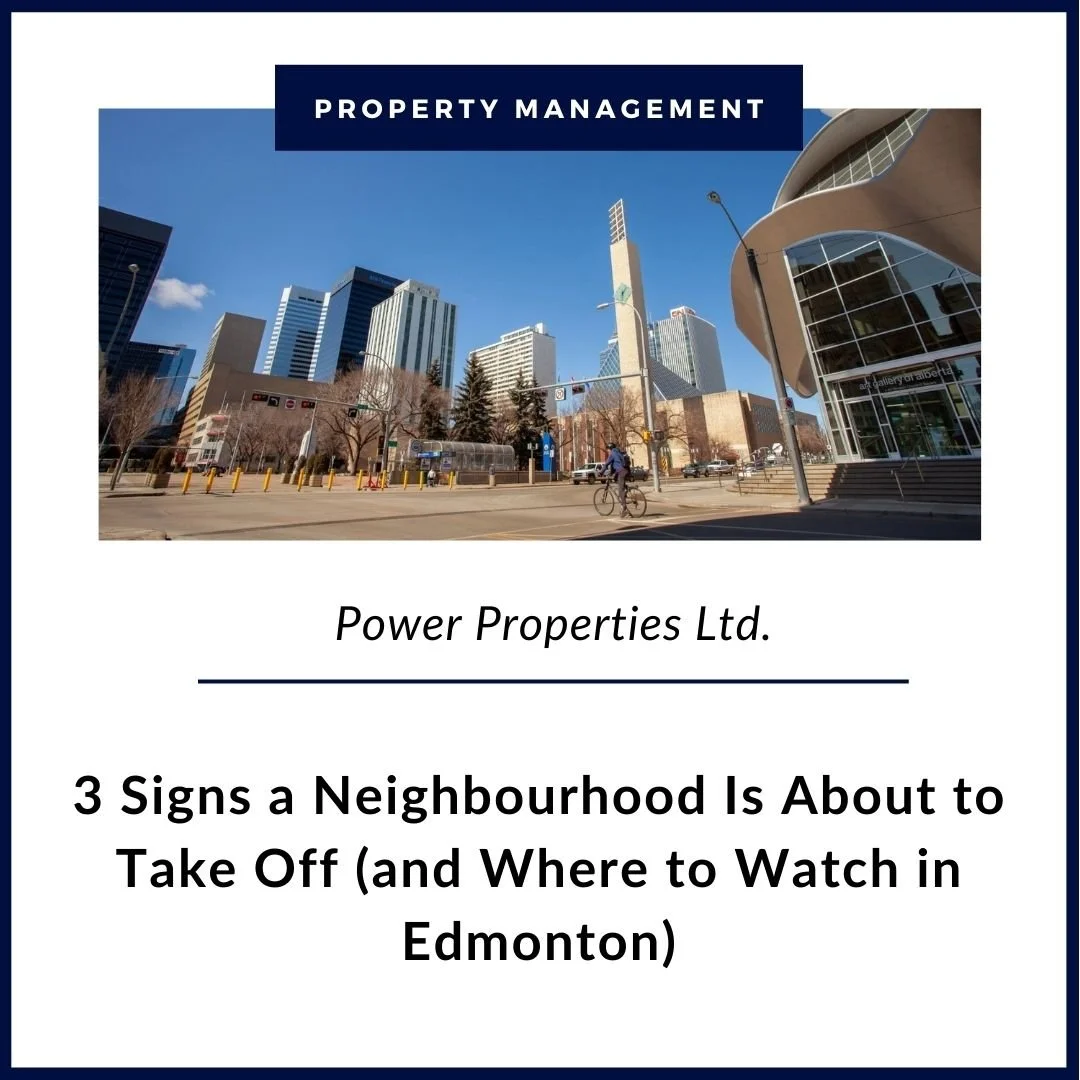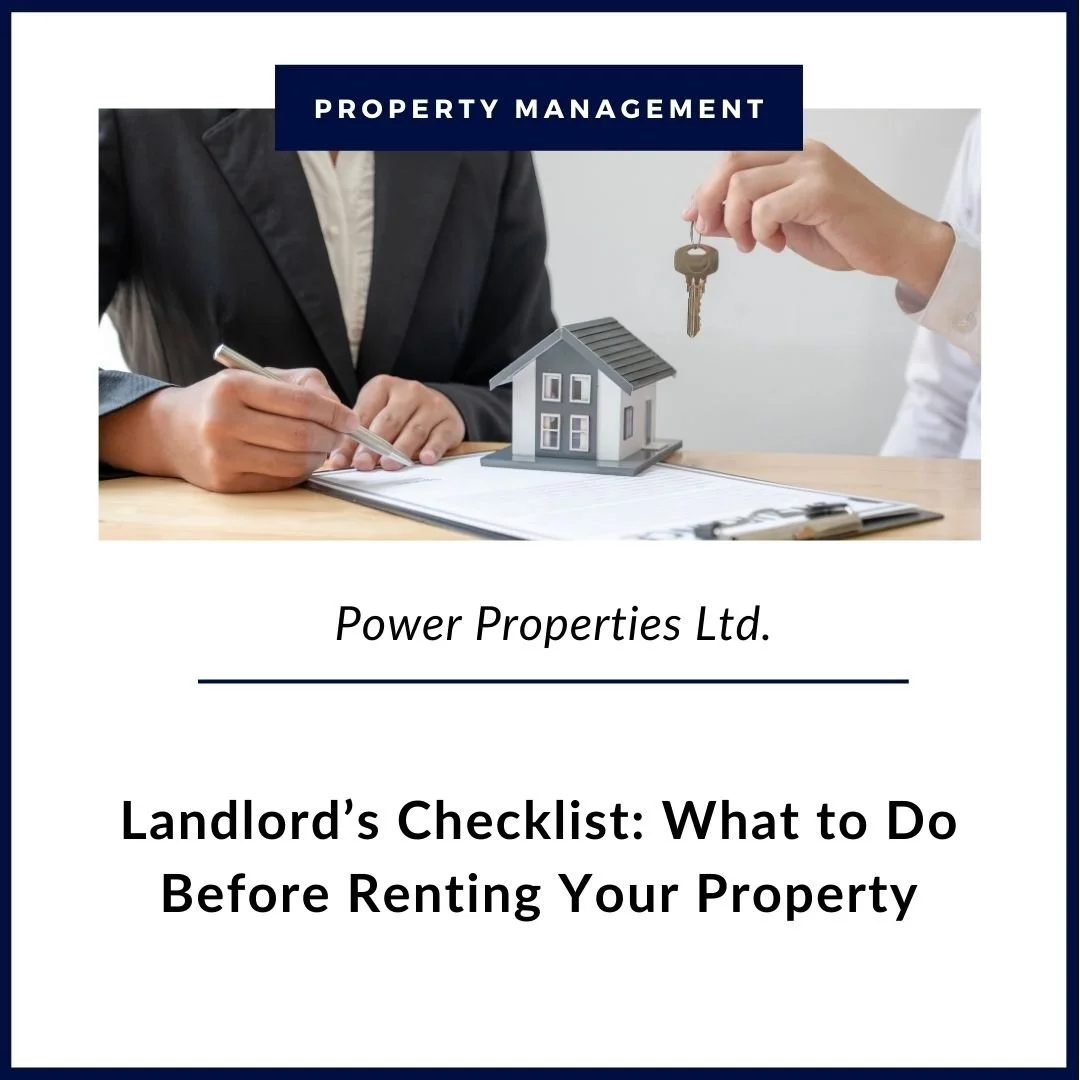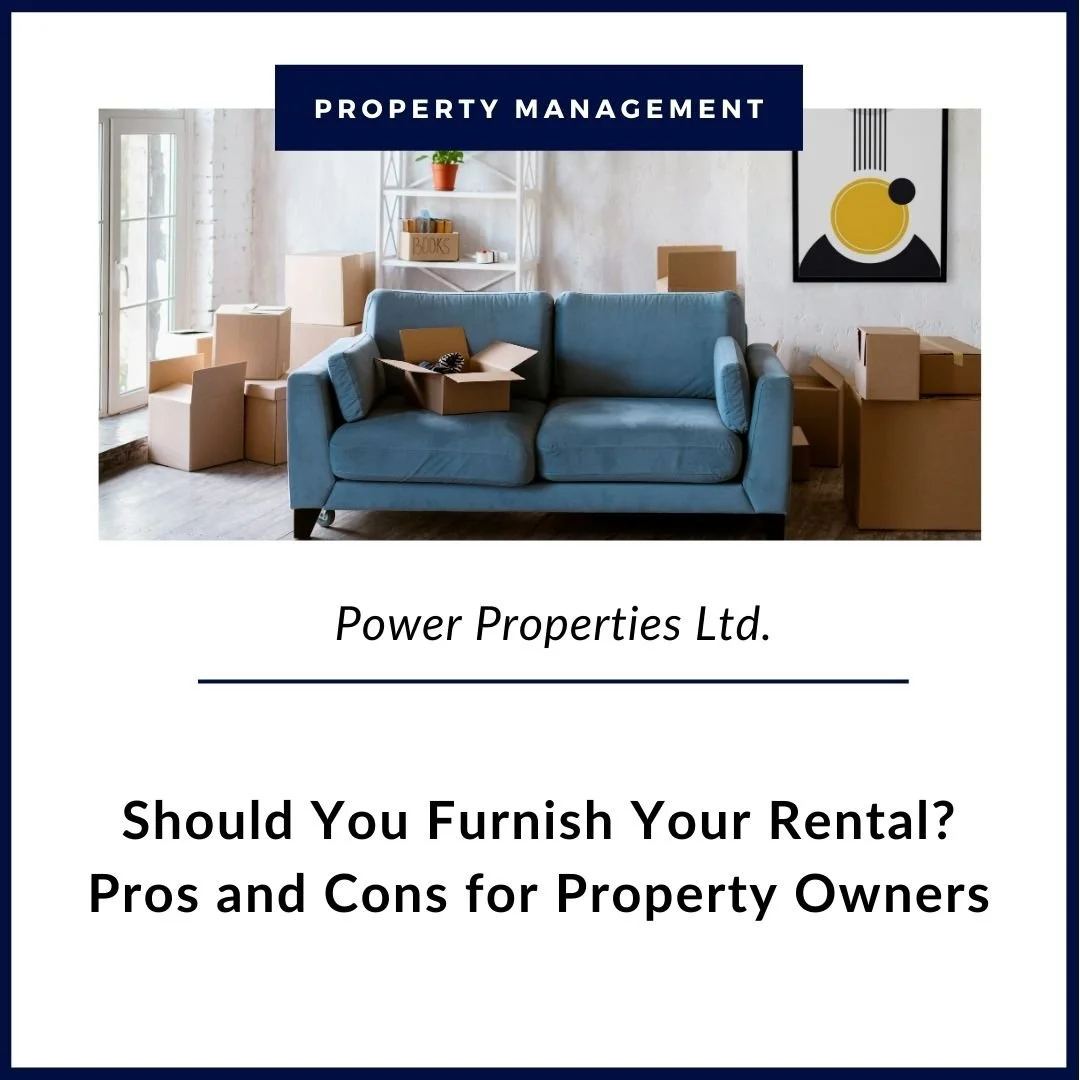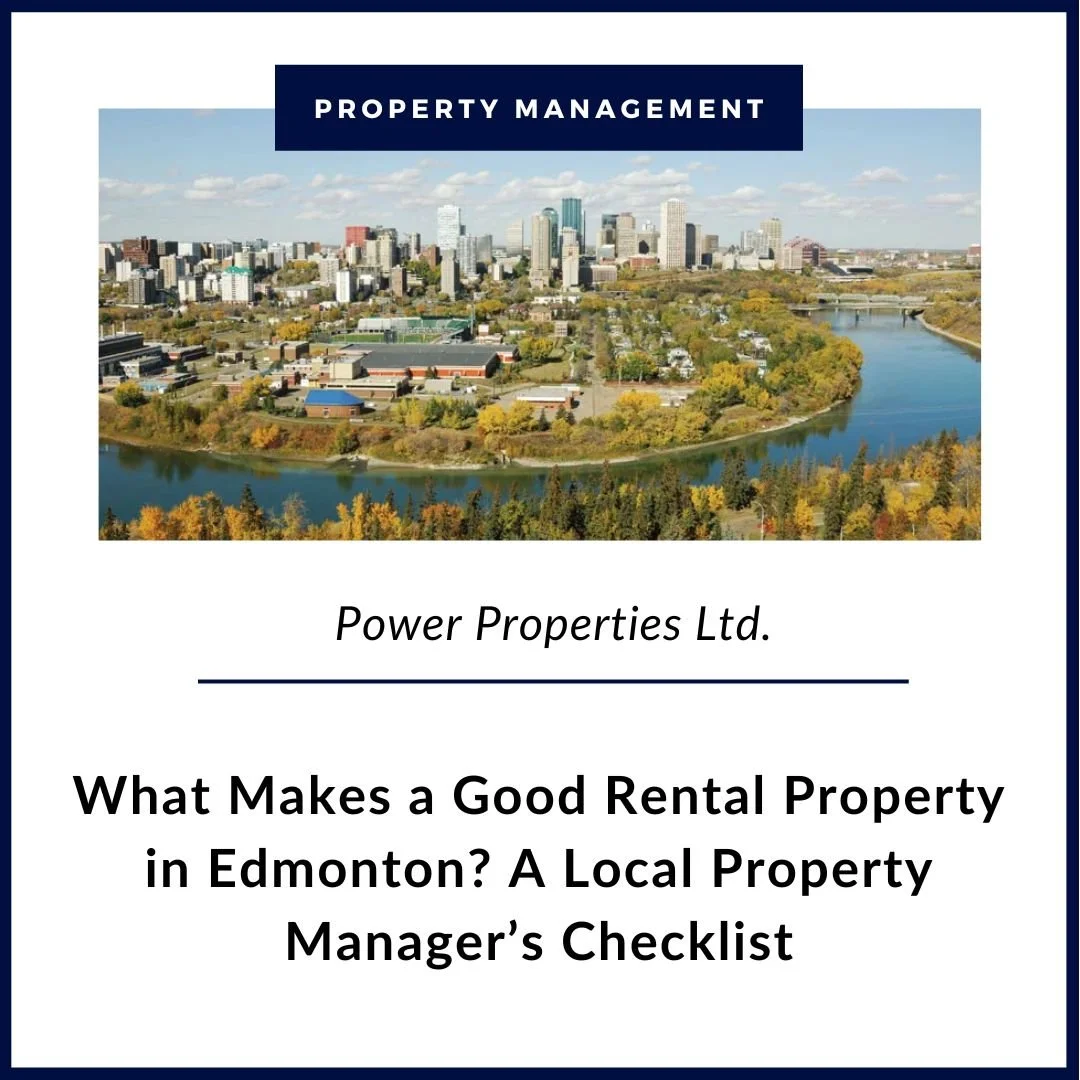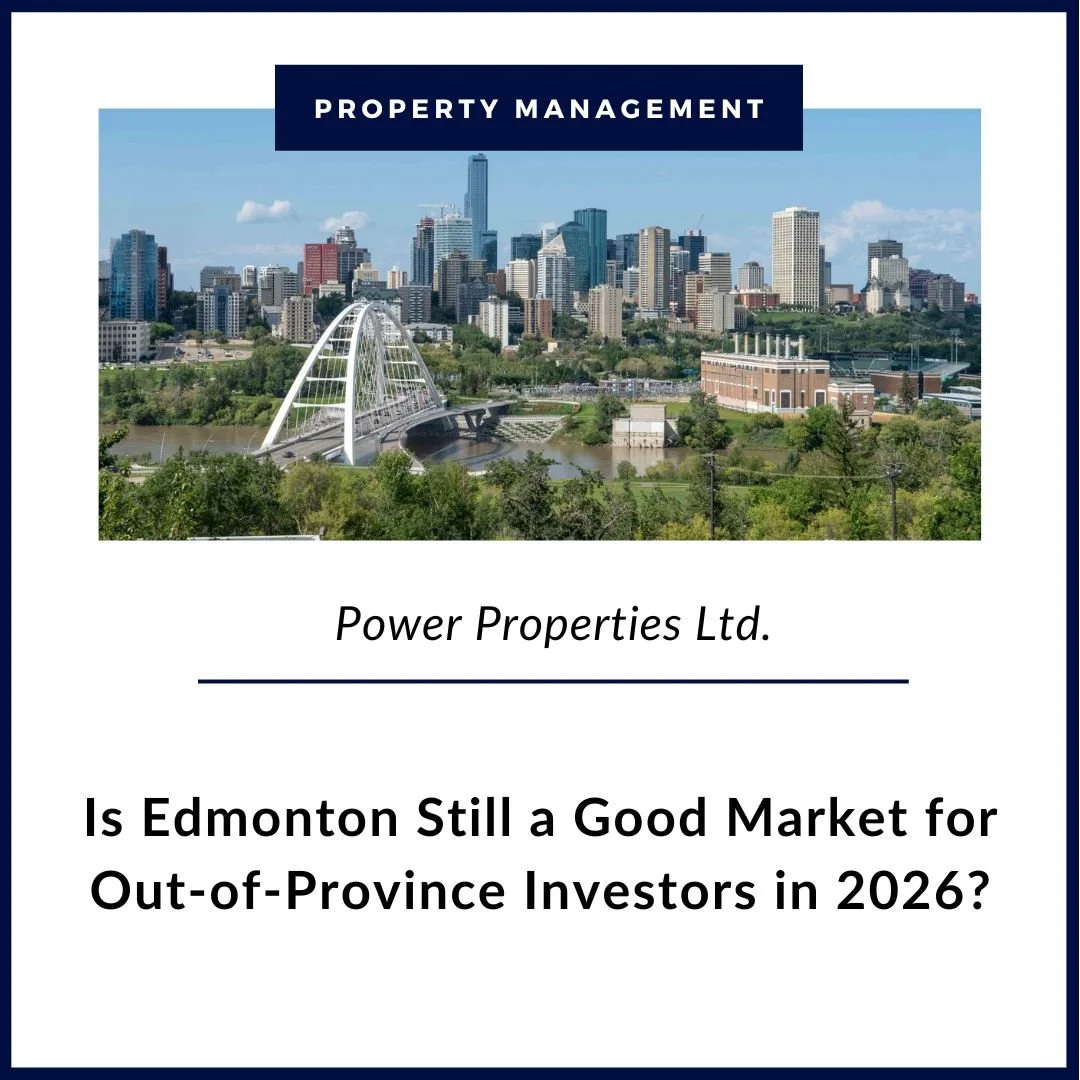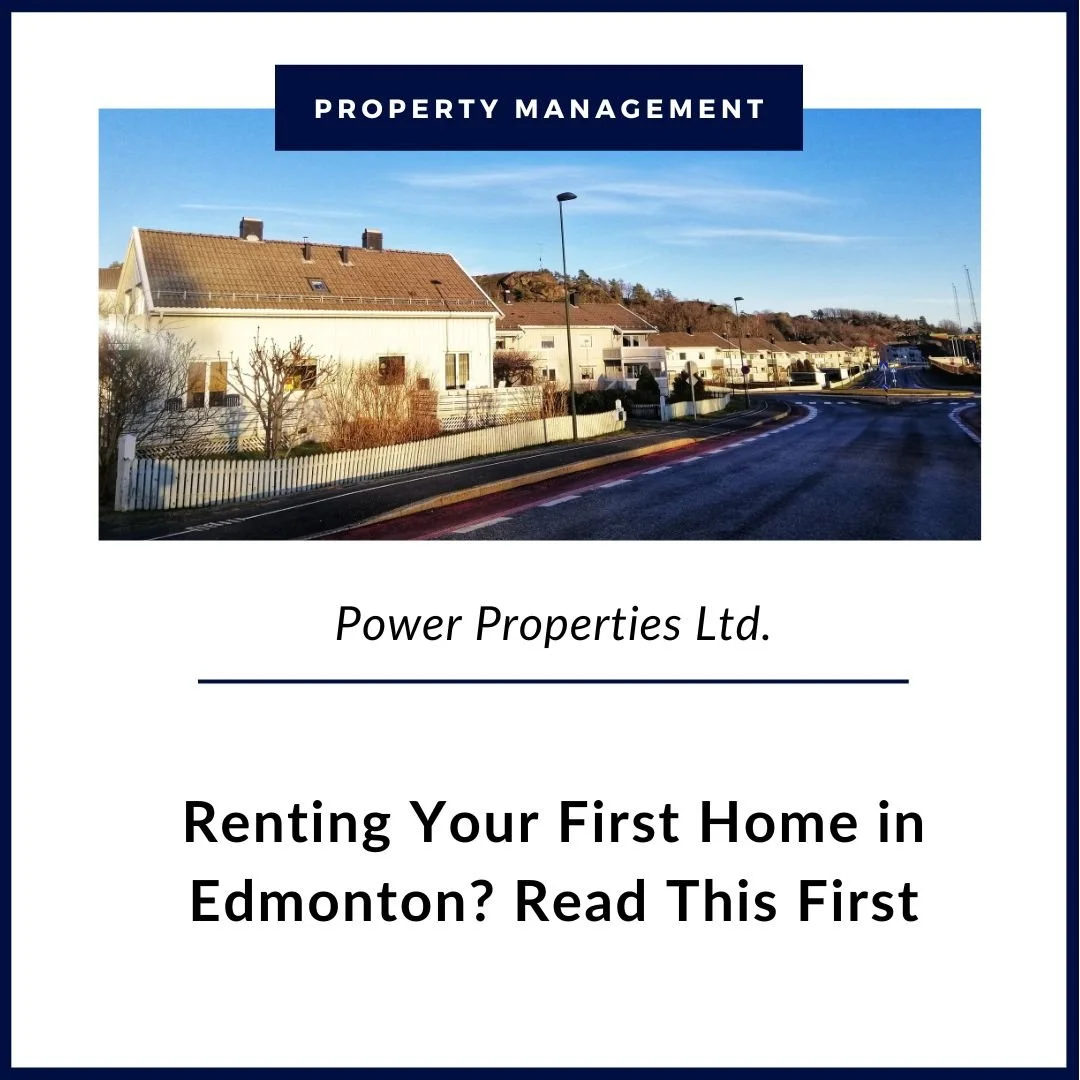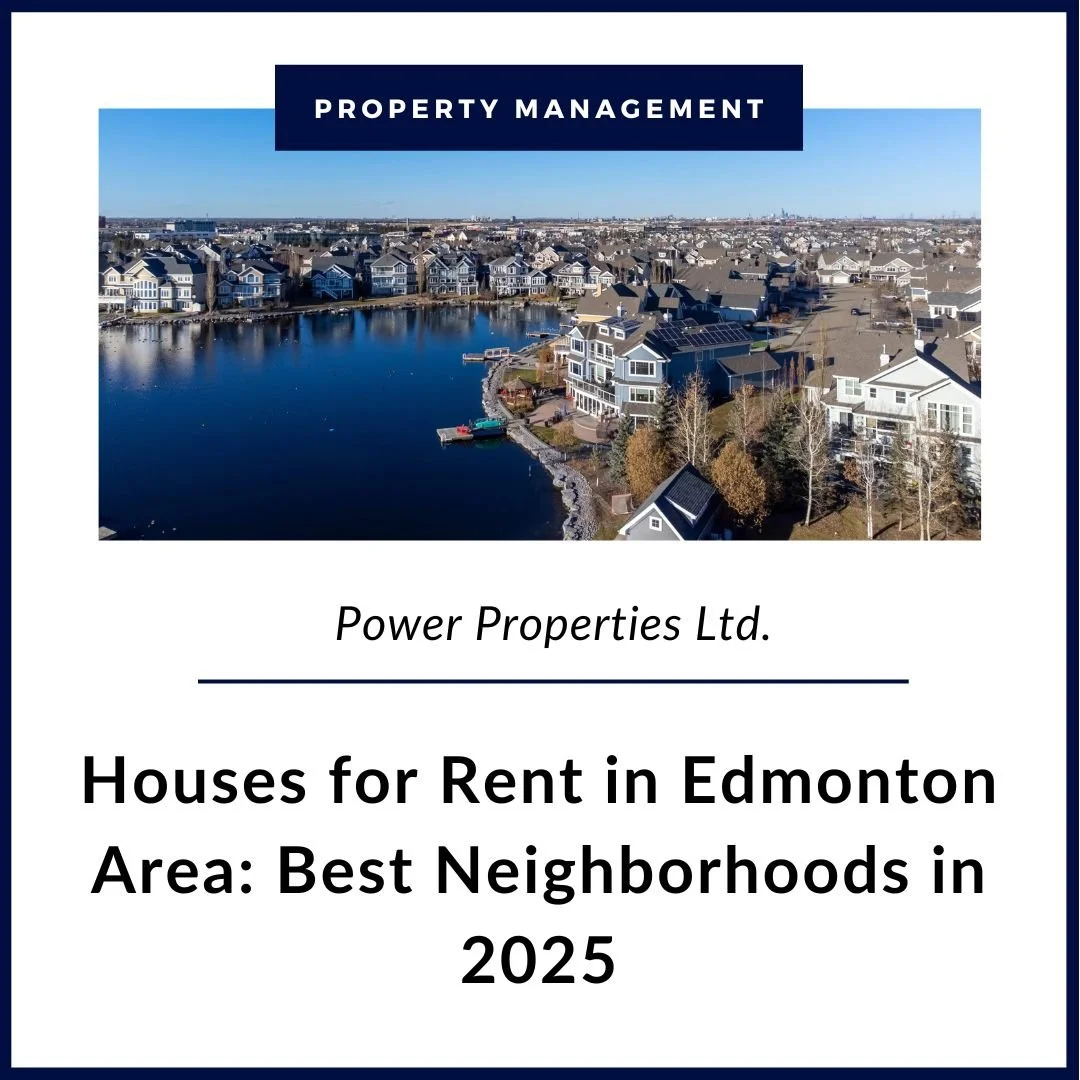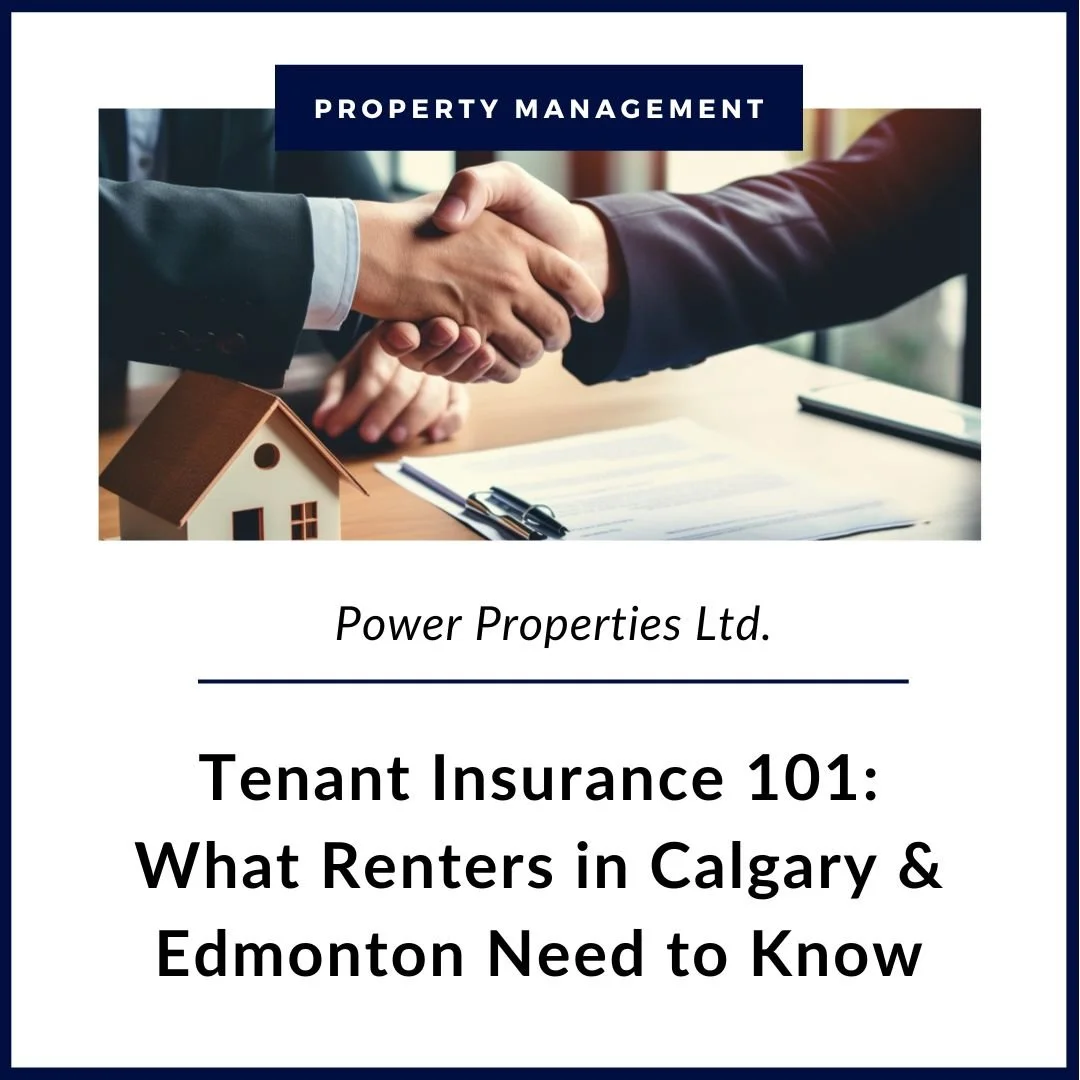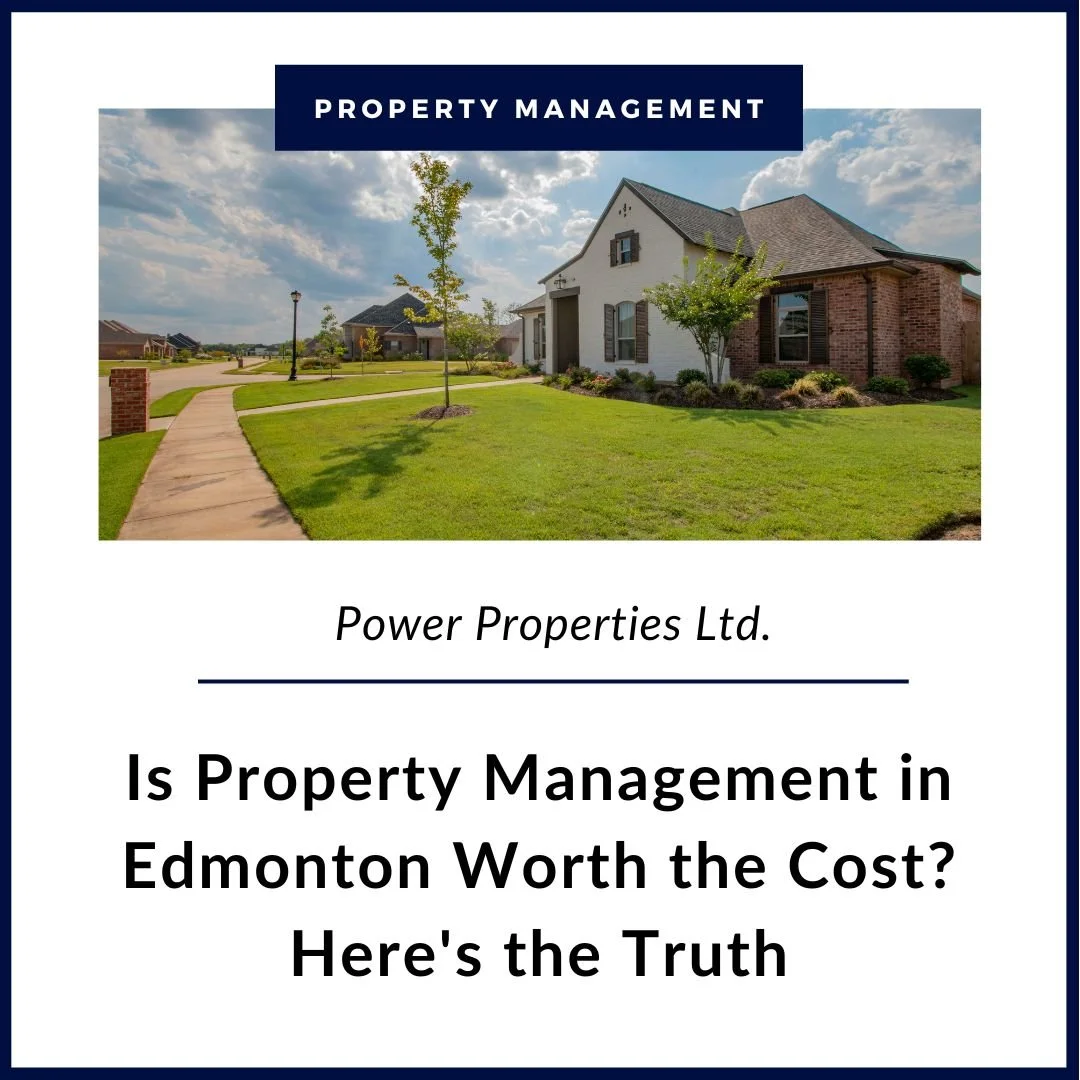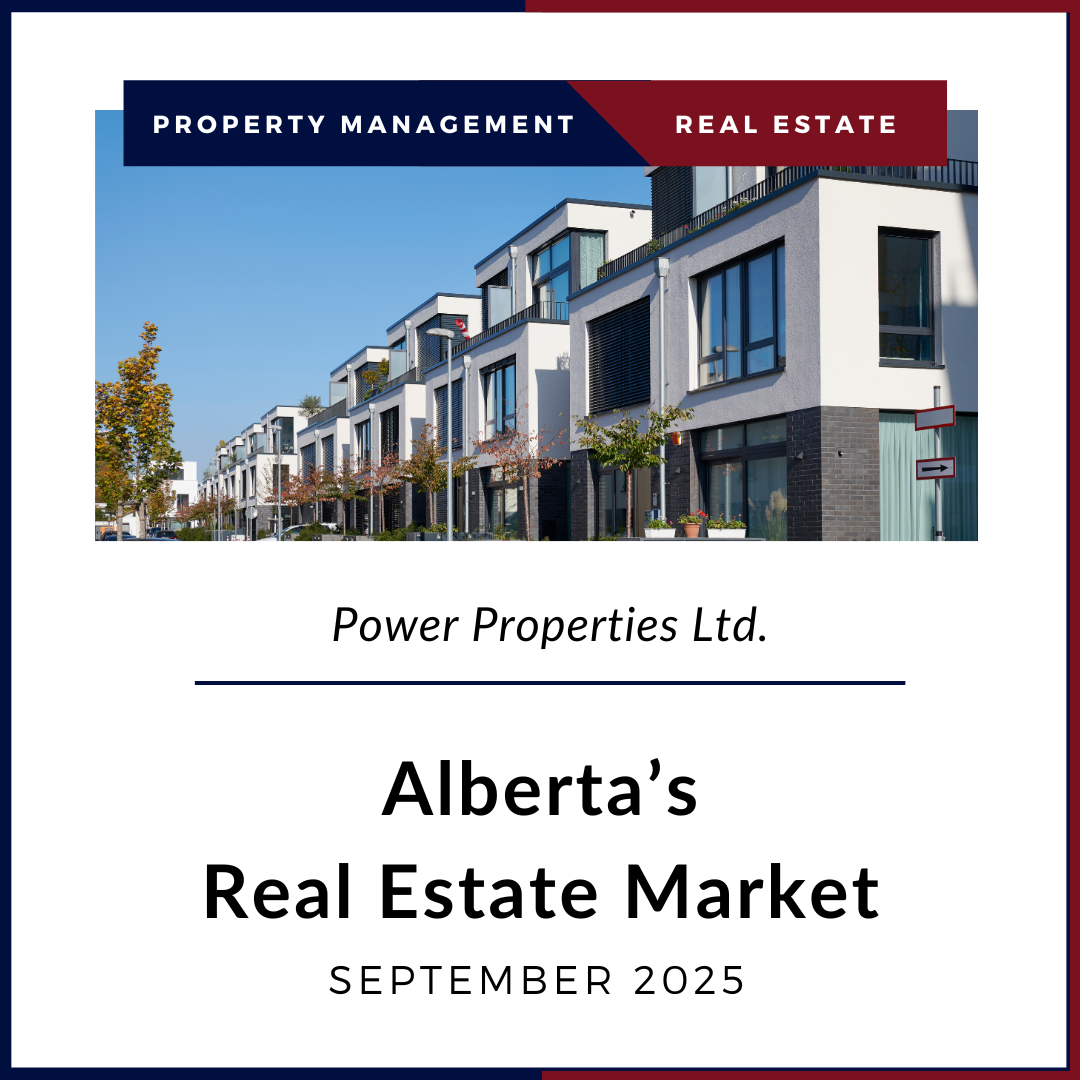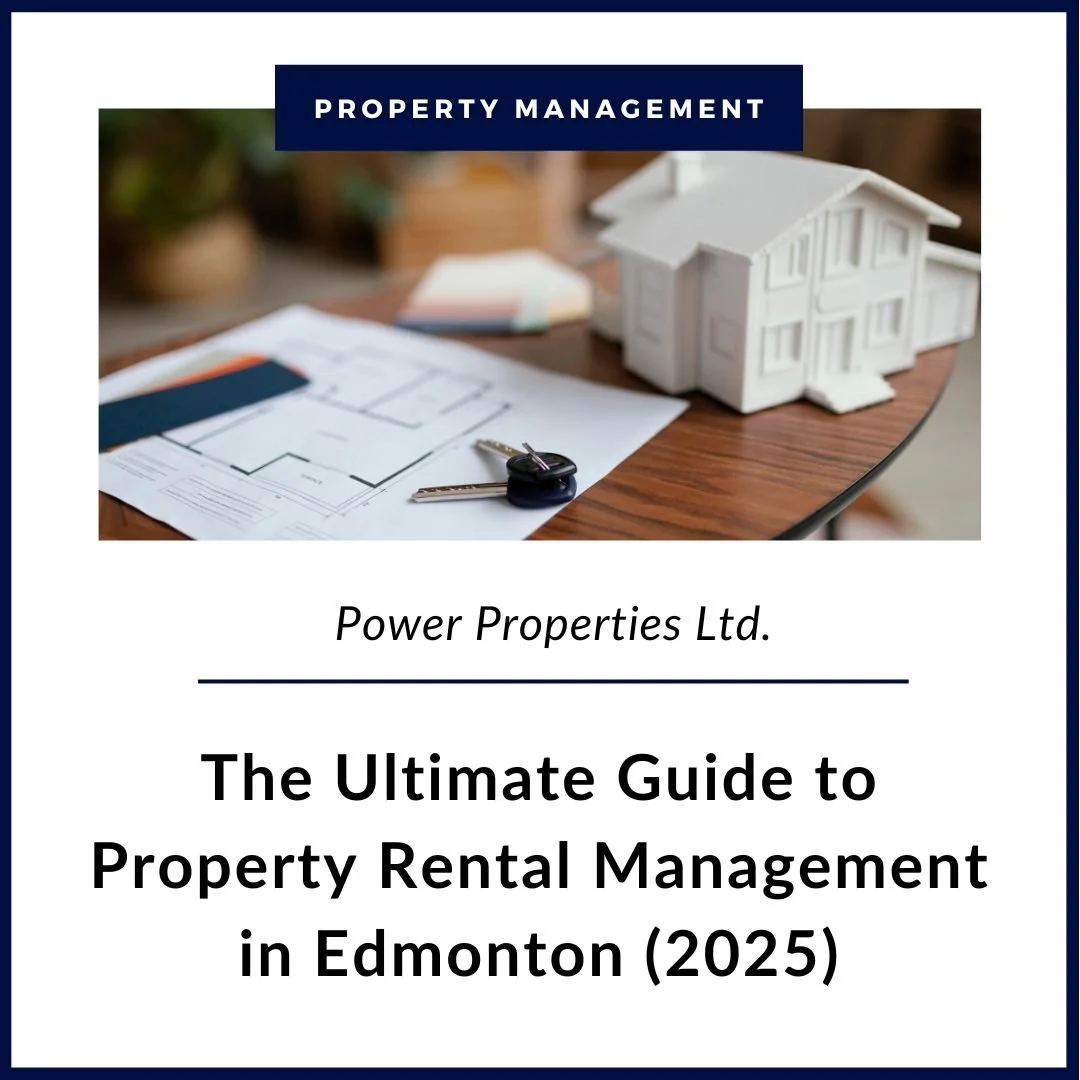How to Get Rental Property Insurance in Edmonton
Written By Power Properties
As a landlord or property owner in Edmonton, you understand that your rental property is a significant investment. But are you truly protecting it from the unexpected?
While the vibrant Edmonton real estate market offers incredible opportunities for property rental, it also comes with inherent risks. That's where rental property insurance Edmonton comes in.
Often overlooked or misunderstood, landlord insurance is not just an optional extra; it's a fundamental safeguard for your financial well-being and peace of mind.
At Power Properties, we believe in empowering property management in Edmonton with the knowledge they need. This guide will walk you through everything you need to know about securing the right property insurance for landlords in Edmonton.
What Is Rental Property Insurance (Landlord Insurance)?
Let's start with the basics. Rental property insurance, often called "landlord insurance," is a specialized type of insurance designed specifically for properties rented out to tenants. Unlike standard homeowner's insurance, which covers an owner-occupied dwelling, landlord insurance accounts for the unique risks associated with having tenants.
For Edmonton landlords, this distinction is crucial. Your regular home insurance policy likely won't cover damages or liabilities that arise when you're not living in the property yourself. Landlord insurance steps in to fill that gap, protecting your investment from a range of perils, from tenant-related incidents to natural disasters.
Why Landlord Insurance Matters in Edmonton
Imagine this: A pipe bursts while your tenants are away for the weekend, causing significant water damage. Or, a tenant's guest slips and falls, resulting in an injury and a potential lawsuit. These aren't far-fetched scenarios; they're real risks that Edmonton property insurance coverage helps mitigate.
Here’s why having robust landlord insurance is absolutely essential:
Real-life scenarios: Whether it's unexpected tenant damage, a devastating fire, an intense Edmonton hailstorm, or even vandalism, these incidents can lead to massive repair costs. Without insurance, these expenses fall directly on you.
Legal & Financial Protection: Accidents happen. If a tenant or visitor is injured on your property, you could face hefty legal fees and compensation claims. Liability coverage within your landlord policy protects you from these potentially bankrupting costs.
Peace of Mind for Property Owners: Knowing your investment is protected allows you to focus on the benefits of being a landlord, rather than constantly worrying about potential disasters.
Importance in Alberta’s Landlord-Tenant Regulations: While not legally mandated in Alberta, having appropriate insurance is a cornerstone of responsible property ownership and can be a requirement for many mortgage lenders. It aligns with the best practices for landlords outlined in the Residential Tenancies Act.
Types of Rental Property Insurance Coverage
Understanding the different components of rental property insurance Edmonton is key to choosing the right policy. Here are the main types of coverage you’ll typically find:
Property Damage Coverage
This is the core of your policy, protecting the physical structure of your rental property and any fixtures you own (like appliances). It covers damage from perils such as:
Fire and smoke
Windstorms and hail (a common concern in Alberta!)
Water damage (burst pipes, leaks, but often excludes flood unless added)
Lightning
Vandalism and malicious mischief
Falling objects
Liability Coverage
Perhaps the most critical aspect, liability coverage protects you financially if someone is injured on your rental property and you are found responsible. This can cover:
Medical expenses for the injured party
Legal defense costs, even if the claim is unfounded
Settlements or judgments awarded against you
Loss of Rental Income
What happens if a fire or other covered peril makes your property uninhabitable, and your tenants have to move out? This coverage helps replace the rental income you lose while the property is being repaired, ensuring your cash flow isn't completely disrupted.
Additional Coverage Options
Depending on your property's location and specific risks, you might consider adding:
Sewer Backup Coverage: Protects against damage from municipal sewer or septic system backups.
Extended Water Damage: Covers perils like overland flood, which is often excluded from basic policies.
Guaranteed Replacement Cost: Ensures your property is rebuilt even if costs exceed your policy's dwelling limit.
Landlord's Contents Coverage: For any furnishings or appliances you provide for tenant use.
Bylaw Coverage: Helps cover increased costs of repairs due to current building codes after a loss.
Tenant Damage Insurance Alberta: While tenants are responsible for their own contents insurance, some landlord policies offer specific protection against tenant-caused damage beyond normal wear and tear.
How to Get Rental Property Insurance in Edmonton (Step-by-Step)
Securing the right property insurance for landlords doesn't have to be complicated. Follow these steps to ensure you're well-protected:
Step 1: Assess Your Property and Coverage Needs
Before contacting insurers, take stock of your property.
What type of property is it? (Single-family home, condo, duplex, apartment building?)
What is its replacement cost? (How much would it cost to rebuild from scratch, not market value?)
What are the specific risks? (Is it in a flood-prone area? Older wiring? High-value appliances?)
What is your desired liability limit? (Typically $1M or $2M).
Step 2: Research Local Insurance Providers and Brokers
Don't just go with the first quote. Look for providers and brokers experienced with landlord insurance. A local broker will understand specific Alberta risks and regulations.
Ask for recommendations from other landlords or real estate professionals.
Check online reviews and ratings.
Step 3: Compare Coverage, Exclusions, and Premiums
This is crucial. Look beyond just the price. A cheaper policy might have significant exclusions or lower coverage limits.
Coverage: What perils are covered? What isn't?
Exclusions: Are there specific types of damage (e.g., overland flood, sewer backup) that require an add-on?
Deductibles: How much will you pay out of pocket before insurance kicks in?
Limits: Are the coverage limits (e.g., for rebuilding, liability) adequate for your property and risk level?
Step 4: Get Quotes and Ask the Right Questions
Contact multiple insurers or work with a broker who can do this for you. When getting quotes for how much does rental property insurance cost in Edmonton, ask:
"Does this policy specifically cover rental properties with tenants?"
"What is included in the standard liability coverage?"
"What are the common exclusions I should be aware of?"
"Can I add coverage for specific risks like sewer backup or overland flood?"
"What discounts are available (e.g., claims-free, security systems, multiple policies)?"
Step 5: Purchase and Review Your Policy Carefully
Once you've chosen a policy, read it thoroughly before signing. Ensure all the details (property address, coverage limits, deductibles, listed perils) are accurate. Don’t hesitate to ask your broker to clarify anything you don't understand.
Step 6: Keep Your Policy Updated as Your Property Changes
Life and properties evolve.
Renovations: Significant upgrades can change your property’s value and risks.
Vacancy: If your property is vacant for an extended period, it may require specific coverage.
New Appliances/Improvements: If you add high-value items, ensure they're covered.
Change of Use: If you stop renting or sell the property.
Read also: Houses for Rent in Edmonton Area: Best Neighborhoods in 2025
Cost of Rental Property Insurance in Edmonton
"How much does rental property insurance cost in Edmonton?" is a common question, and the answer varies widely. While there’s no single price, expect an average cost range from a few hundred dollars to well over a thousand annually for different property types.
Factors affecting premiums include:
Location: Neighborhoods with higher crime rates or specific environmental risks (e.g., proximity to a flood zone) may have higher premiums.
Building Type & Age: Newer homes with modern electrical, plumbing, and roofing systems generally cost less to insure than older properties.
Construction Materials: Brick homes might be cheaper to insure than wood-frame.
Claims History: A history of claims (yours or previous owners) can increase premiums.
Coverage Level & Deductible: Higher coverage limits and lower deductibles will result in higher premiums.
Safety Features: Smoke detectors, security systems, and sprinkler systems can lead to discounts.
How to lower costs without compromising protection:
Increase your deductible: Accepting a higher out-of-pocket amount reduces your premium.
Bundle policies: If you have multiple rental properties or other insurance (auto, primary home), inquire about multi-policy discounts.
Improve security: Install alarm systems or deadbolts.
Maintain your property: Proactive maintenance (e.g., roof repairs, plumbing updates) can prevent claims and demonstrate responsibility.
Shop around: Get multiple quotes to compare the best rental insurance providers Edmonton.
How to File a Claim If Something Happens
Despite all precautions, incidents can occur. Knowing how to file a property insurance claim Edmonton can make a stressful situation more manageable. `
Step-by-step Claim Process:
Ensure Safety & Prevent Further Damage: Your first priority is safety. If there's an active threat (e.g., ongoing leak, fire), address it if safe to do so. Take reasonable steps to prevent further damage (e.g., turning off water main, boarding up broken windows).
Document Everything: Take photos and videos of all damage before any cleanup or repairs begin. Make a detailed list of damaged items. Keep any receipts for emergency repairs.
Notify Your Insurer or Broker Immediately: Contact your insurance company or broker as soon as possible. They will guide you through the process and provide a claim number.
Review Your Policy: Understand what your policy covers and your deductible. Your insurer will assign an adjuster to assess the damage.
Cooperate, Keep Records, & Follow Up: Provide all requested documentation, communicate openly with the adjuster, and keep detailed records of all interactions, calls, and emails related to your claim.
Common Mistakes to Avoid:
Delaying Notification: The sooner you report, the smoother the process.
Disposing of Damaged Items: Don't throw away damaged property until the adjuster has had a chance to inspect it.
Making Major Permanent Repairs: Only make emergency, temporary repairs to prevent further damage. Wait for your insurer's approval before starting extensive work.
Protecting Your Investment
Your rental property in Edmonton isn't just a building; it's a significant financial asset and a source of income. Just like any valuable investment, it needs proper protection. Rental property insurance Edmonton is that vital safeguard, shielding you from unforeseen risks and providing crucial financial security.
Navigating the world of insurance can seem daunting, but with the right information and guidance, you can confidently protect your investment. Whether you're a seasoned investor or a first-time landlord, understanding and acquiring the appropriate landlord insurance Edmonton is a non-negotiable step towards responsible property ownership.
Don't leave your investment exposed to the unexpected. Talk to Power Properties today to learn more about comprehensive property management in Edmonton and how we can help you protect your assets and maximize your returns.
FAQ
-
No, the Residential Tenancies Act (RTA) does not legally mandate landlord insurance. However, it is an absolute necessity for risk management and is always required by mortgage lenders. Operating without it is financially reckless.
-
No. A landlord's policy covers the building structure, the landlord's liability, and the landlord's contents (appliances, furnishings). It explicitly does not cover a tenant's personal property (furniture, electronics, clothing). Tenants must purchase their own tenant (renter's) insurance for this protection.
-
Yes. While Alberta law does not mandate tenant insurance, landlords can and should make it a mandatory term of the lease agreement. This transfers liability risk away from you if the tenant causes damage (e.g., leaving a tap running) and protects their possessions.
-
If you experience a major claim (like a fire or flood) and the insurer discovers the home was not owner-occupied, they will likely deny the claim entirely due to a breach of the policy's occupancy clause. This is a form of material misrepresentation.
-
While $1 million is the standard minimum, most experts and veteran landlords recommend a minimum of $2 million in Landlord Liability Insurance Edmonton. For multiple properties, a Commercial Umbrella Policy is advised to add an extra layer of liability protection above the primary limit.
-
No. Loss of Rental Income coverage only applies when the property is uninhabitable due to a covered peril (like a fire or flood). It does not cover rent lost due to tenant non-payment, lease disputes, or a standard eviction process.
-
Almost certainly not. Standard landlord policies are for long-term (minimum one-year) occupancy. Short-term rentals are considered a commercial business operation and require a specialized commercial home insurance policy or a specific short-term rental endorsement, which is often more costly.
-
RCV is the cost to rebuild or replace an item with new material of similar kind and quality, without subtracting for age or depreciation. ACV is the RCV minus depreciation. You should always aim for RCV coverage on the dwelling structure.
-
Most standard landlord policies allow a property to be vacant for 30 to 60 consecutive days. If it will be vacant longer (e.g., during renovations or a lengthy search for a new tenant), you must notify your insurer and purchase a Vacancy Permit (an endorsement).
-
Yes. If you have a separate, legal secondary suite, you must disclose this to your insurer. It may be covered under a single policy, but you need to confirm:
The coverage limit accounts for the full replacement cost of the entire structure.
Your liability covers both tenants.
The policy includes Sewer Backup coverage, which is critical for basements.
-
A DP-1 (Basic Form) policy often excludes damage from freezing pipes. This is typically covered under the broader DP-2 (Broad Form) or DP-3 (Special Form) policies, and is a mandatory item to check when insuring property in a cold climate like Edmonton.
-
As the property owner, you must file the claim and pay your deductible. You may then have the legal right to pursue the tenant through the Residential Tenancy Dispute Resolution Service (RTDRS) or civil court to recoup the cost of the deductible and any non-covered losses.
-
Yes, immediately. Major changes like roof replacement, new furnace installation, or basement development can either lower your risk and premium or temporarily void your policy if the home is deemed a construction site. Always notify your broker before work begins.
-
No. Insurance policies are contracts specific to the named insured (you) and are non-transferable. The buyer must secure their own policy (homeowners or landlord, depending on their plans) that is effective on the closing date.
-
First, contact your insurance broker to help you understand the denial reason. If you believe the denial is improper, you can:
Internal Review: Request an internal review by a senior claims manager at the insurance company.
Ombudsman: Escalate the complaint to the insurer's internal ombudsman.
External Review: Use the services of the General Insurance OmbudService (GIO), which provides free, impartial resolution services for insurance disputes.
About Power Properties Ltd.
Founded in 1980, Power Properties has been providing hassle-free property management services to property owners, property investors and non-residents with homes in Calgary, Edmonton, Lethbridge and Medicine Hat for over 45 years. Our full-service property management includes everything from move in to move out, so you don’t have to worry about the day-to-day operations of your rental property. With a team of licensed professionals, years of experience, and award-winning service, you can rest assured that your property is in good hands.



